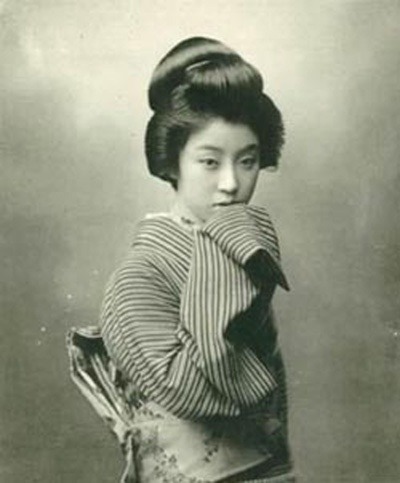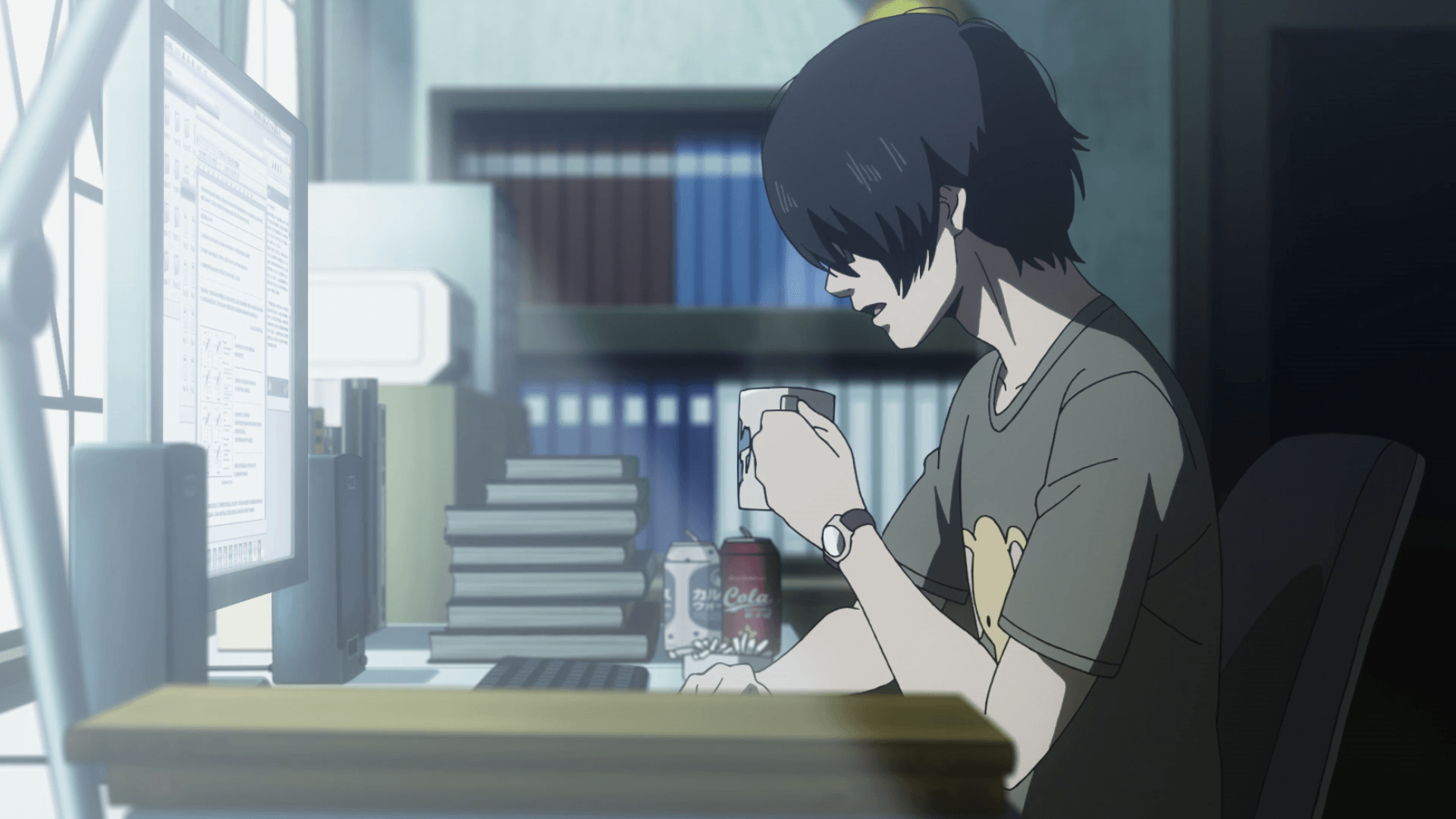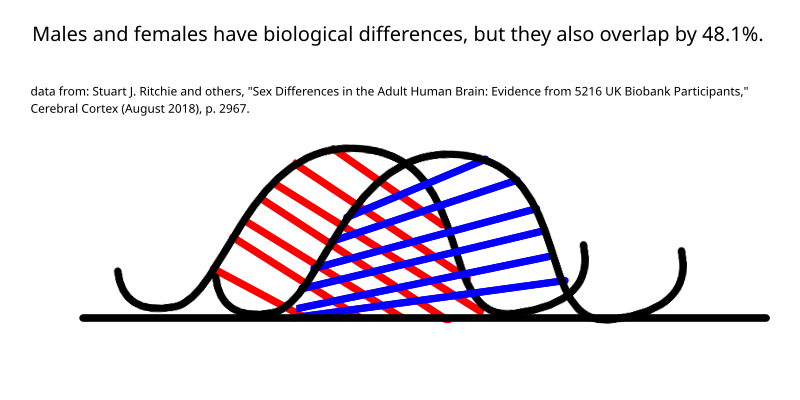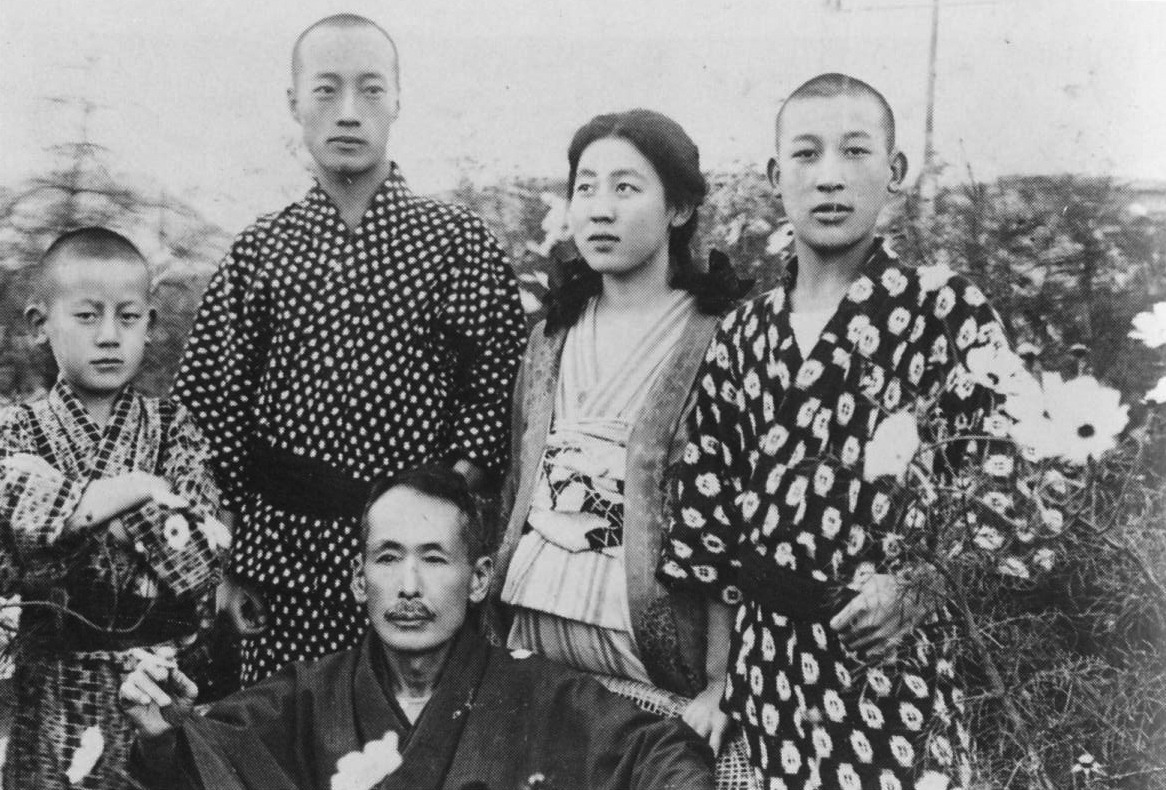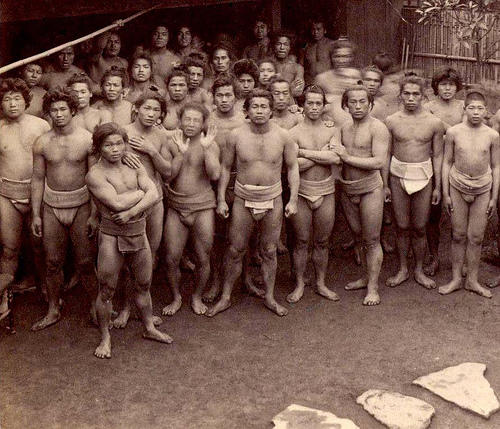 Many trees have died to research the effects of Japan’s patriarchal society on women. I also did my part by killing digital trees. Surprisingly, not as much research has been done on men. Patriarchal societies may appear to be a man’s paradise, but these societies place a heavy burden on men, perhaps even heavier than on women.
Many trees have died to research the effects of Japan’s patriarchal society on women. I also did my part by killing digital trees. Surprisingly, not as much research has been done on men. Patriarchal societies may appear to be a man’s paradise, but these societies place a heavy burden on men, perhaps even heavier than on women.
Many people get upset about female gender roles and the submissive nature of those roles. However, we rarely consider the opposite side. Being the head of the household and forced to wield authority over women and other people lower in the social order can be a problem for some men. Of course, many men (and women for that matter) enjoy lording over others. But what of those men who do not fit into the social role? What exactly is the social role of men in Japanese society?
Enter Confucius
You may be surprised to learn that Japan used to be a matriarchal society. That is, until Confucianism landed on Japan’s shores (Sugihara & Katsurada, 2000). The arrival of China’s long-beard philosophy — hey, that is how many view it, as an old man with a long beard — marked the beginning of women’s subordination to men and forcing men into authoritative roles.
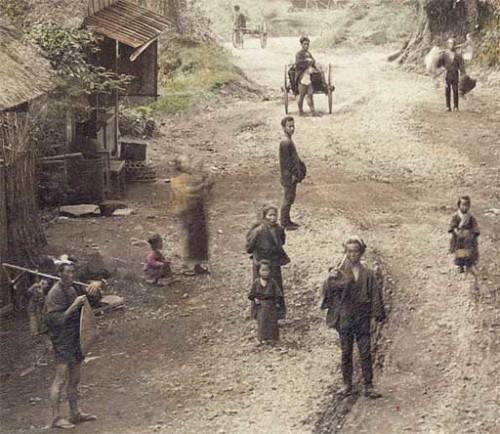 Confucianism focuses on order. Everything has its place. The household, called ie 家 in Japanese, is the basic building block of society. Confucianism view men as aggressive, independent, dominate, competitive, confident, and analytical. All of which are needed to head a household and manage the family’s estate. Men must be leaders, risk-takers, decision makers, and profoundly loyal to his lord and emperor. During the Tokugawa period, Confucian structure was encouraged by the Shogun. (Sugihara & Katsurada, 2000; Slote & De Vos, 1998). In addition to this, men were required to cultivate themselves through intellectual activity, self denial, and discipline. Even the lower classes were expected to practice self denial and discipline.
Confucianism focuses on order. Everything has its place. The household, called ie 家 in Japanese, is the basic building block of society. Confucianism view men as aggressive, independent, dominate, competitive, confident, and analytical. All of which are needed to head a household and manage the family’s estate. Men must be leaders, risk-takers, decision makers, and profoundly loyal to his lord and emperor. During the Tokugawa period, Confucian structure was encouraged by the Shogun. (Sugihara & Katsurada, 2000; Slote & De Vos, 1998). In addition to this, men were required to cultivate themselves through intellectual activity, self denial, and discipline. Even the lower classes were expected to practice self denial and discipline.
In the samurai class, men were expected to be accomplished in literature and the arts in addition to being strong warriors (Brown, 2012; Sugihara & Katsurada, 2002). This was all a part of Bushido, the warrior’s ethic. Bushido forms the foundation for Japanese male identity from the feudal era up to the end of World War II. One of the key ideas of the ethic is selfless loyalty and dedication to the emperor. These ideas led to the kamikaze and other suicidal practices martial men were expected to do. Seppuku also comes to mind.
Basically, men were expected to run the show and earn the family’s wealth. I don’t know about you, but that sounds like a lot to shoulder. The local lord also expected men to serve him in war. Even the peasant class had the risk of being conscripted as an ashigaru.
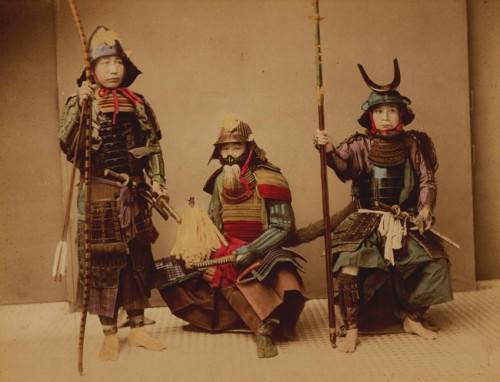
As you may remember from the article about women’s gender roles, women were also expected to be loyal to their husbands and the Japanese state. However, their loyalty was not quite as demanding as what was expected of men. Particularly during WW2, the imperial government of Japan demanded total sacrifice from Japanese men. Although it is dramatized, I recommend you watch Letter of Iwo Jima to get an idea of what some Japanese soldiers may have experienced.
Men in Modern Japan
As I mentioned, bushido drove expectations of manhood in World War II. Beyond loyalty, the patriarchal system enshrined gender roles as a sacred duty. People in power were morally superior and deserved their higher status because of it (Slote & De Vos. 1998). Anyone who spoke against these compartment roles spoke out against the sacred. Society pressures men to conform to expectations just as much as it does women. Men are expected to shoulder authority, even when he would rather share it with his wife. Men who would like to spend more time with children cannot. Being a stay-at-home dad isn’t something “real” men do. American men wrestle with this as well. I have friends who dreamed of being stay-at-home fathers, but society’s expectations frowned upon them doing “women’s work”.
The roles can be summarized in three points:
- The father (or CEO) must be obeyed.
- Defer to those who are older.
- Serve the emperor (or company).
These ideas go beyond what we in the West would consider service. Loyalty involves more than obeying orders and heeding advice. It involves anticipating what benefits the superior. Loyalty means being proactive. Being proactive is one reason why some Japanese men have died on the job. Another factor is the idea that men must be wholly dedicated to their work.
Bae (2010) conducted a study about gender role division. Japanese men who believed a man must be devoted to work and women to the household reported higher life satisfaction when that was the case. They also reported lower satisfaction when wives were forced (or wanted) to work. Egalitarian-minded men reported the opposite, higher life satisfaction when the wife also worked and lower when she did not. However, both types of men wrestled with feelings of inadequacy about his ability to provide for the family when the wife worked. Men’s social role of being the devoted breadwinner remains a burden.
Senpai-kohai Relationships
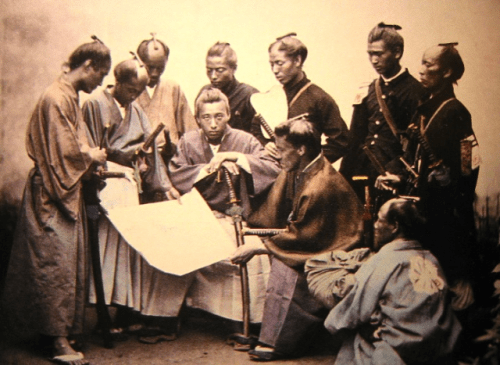 Japanese men have a tight social world to navigate. Obeying superiors becomes a complicated web. Surprisingly, women are not as aware of senpai-kohai relationships as men (Sugihara & Katsurada, 2002).
Japanese men have a tight social world to navigate. Obeying superiors becomes a complicated web. Surprisingly, women are not as aware of senpai-kohai relationships as men (Sugihara & Katsurada, 2002).
So what exactly is a senpai-kohai relationship?
It is a social structure based on the ideas of loyalty and obedience we already examined. A senpai is someone who is more experienced and therefore higher in the social order. A kohai is someone who is subordinate to the senpai. It is loosely similar to the master-apprentice system. The senpai‘s orders and opinions are absolute and must be obeyed. A senpai’s social standing is enhanced by the number of kohai he has. The kohai benefits from the senpai‘s connections. Kohai receive jobs, positions, and even emotional support from the senpai.
There are times when the roles are reversed. For example, Takashi is the senpai to Shin at work. However, Shin is a senior member at a country club Takashi wants to join. At work, Shin would defer to Takashi. At the country club, Takashi would defer to Shin. Depending on their relationship, honorifics they use to refer to each other may change based on the different social situations.
Senpai-kohai relationships are among the most important and lasting of relationships between Japanese men. Because of the nature of these relationships, and corporate culture’s emphasis on teamwork, Japanese men are expected to balance traditional masculine traits (decision making, competitiveness, and others) with feminine traits such as kindness and sensitivity (Sugihara & Katsurada, 2000)
The Changing Man
Since the feminist movement of the 1960s, Japanese men see a slight loosening in their expected role in society. Some of the stereotypes are not as prominent because of the new demands of the corporate world. However, Japanese men still lack the freedom many Western men enjoy. Japanese men are still expected to found households and be loyal to their company. Duel income households are becoming more common out of necessity (Sugihara & Katsurada, 2000). Because of this, men must shoulder more of the household duties. The added stress of doing “woman’s work” strains his social role and demands he devote less time to his corporate work.
Japanese gender roles are changing. Male gender roles change more slowly than women’s roles, creating tension between the genders (Bae, 2010).
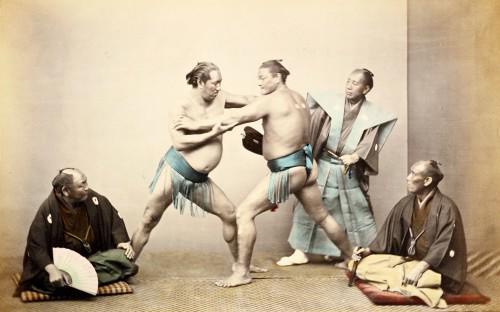 Men’s gender roles are just as constraining as female roles. They constrain differently. Many men do not want to be sole head of the household. I am one of them. Men do not want to spend every waking hour working. Most want to embrace long ignored sides of masculinity: the nurturing and mentoring sides, the soft strength of sensitivity. However, Japanese society –and American society for that matter–have a one dimensional view of men. Feudal Japanese society encourages men to cultivate themselves in the arts and literature, but even this still had an eye toward improving how a man may serve. So-called feminine traits like care-giving and sensitivity are not on the list. Sadly, the sensitive side of men offers the most strength. Grass withstands winds that shatter oaks.
Men’s gender roles are just as constraining as female roles. They constrain differently. Many men do not want to be sole head of the household. I am one of them. Men do not want to spend every waking hour working. Most want to embrace long ignored sides of masculinity: the nurturing and mentoring sides, the soft strength of sensitivity. However, Japanese society –and American society for that matter–have a one dimensional view of men. Feudal Japanese society encourages men to cultivate themselves in the arts and literature, but even this still had an eye toward improving how a man may serve. So-called feminine traits like care-giving and sensitivity are not on the list. Sadly, the sensitive side of men offers the most strength. Grass withstands winds that shatter oaks.
Gradually, the social demands on Japanese men are changing. Whether or not the change is for the better depends on who you ask. Like so many aspects of Japan, old ideas co-exist with new. Traditional gender roles for men and women might yet find a way to co-exist with new, negotiated gender roles.
References
Bae, J. (2010). Gender Role Division in Japan and Korea: The Relationship between Realities and Attitudes. Journal Of Political Science & Sociology, (13), 71-85.
Brown, R. (2012). Yasuoka Masahiro’s ‘New Discourse on Bushido Philosophy’: Cultivating the Samurai Spirit and Men of Character for Imperial Japan. Social Science Japan Journal. 16 (1). 107-129.
Slote, W. & De Vos, G. (1998). A Japanese Legacy of Confucian Thought. Confucians and the Family. Ebook.
Sugihara, Y. & Katsurada, E. (2000). Gender-role Personality Traits in Japanese Culture. Psychology of Women Quarterly. 24. 309-318.
Sugihara, Y. & Katsurada, E. (2002). Gender Role Development in Japanese Culture: Diminishing Gender Role Differences in a Contemporary Society. Sex Roles. 47. 443-452.
